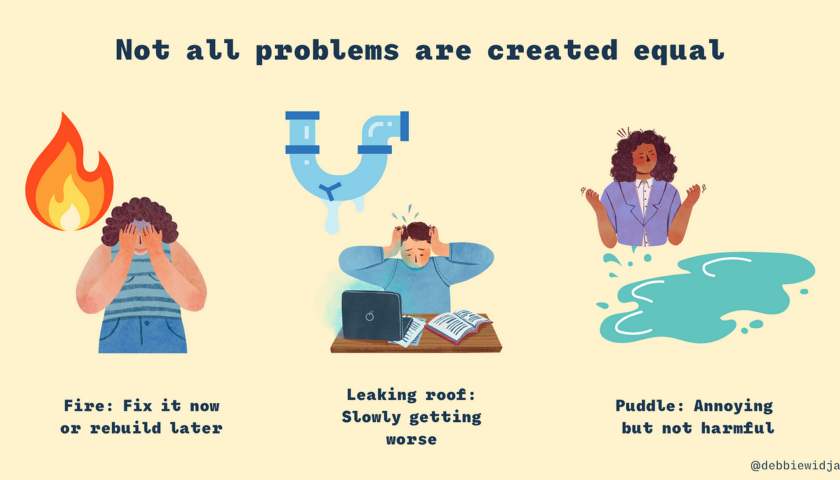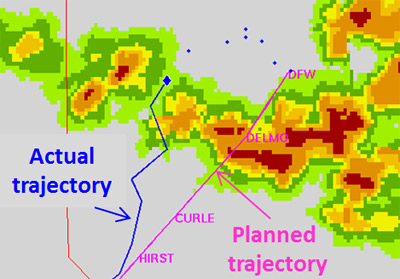Flight delay is one of the primary performance metrics used in the aviation industry to gauge the performance of various players like airline, airport and air traffic control services. Due to the scheduled nature of air transportation, small delays in the system can propagate to not only subsequent flights but also to flights with connecting passengers thus affecting many other flights of the network. This results in large delays for many passengers. Flight delays are a function of several factors and you can read my previous article to better understand them. One factor that greatly affects flight delays but is not entirely understood is flight cancellations. In this blog I will focus on reasons for cancellation of flights.
The airlines like to keep the aircraft on ground for minimum time to maximise their revenues. But cancellations do happen. As such flight cancellations are low probability events, and are inherently difficult to predict. However, when flight cancellations do occur, the impact is substantial. The passengers on the cancelled flight must be rebooked on other flights, often hours later. Flight cancellations is a major source of delay and inconvenience to passengers. Though cancellation make up a very small (1.5 to 2) percentage of flight operations but is major source of passenger delay. Flight cancellations are much more onerous for passengers than flight delays for a number of reasons. First, rebooking the passengers requires finding empty seats on already crowded planes and can result in many hours or even days of delays for the passengers, particularly if the passengers have connecting flights. Second, flight operations are severely impacted because airlines typically use the same aircraft for several flight segments in a row. A flight cancellation will thus have an impact on downline segments ranging from a new aircraft assignment to additional cancellations.
The exact factors that go into which flights are cancelled are not very well understood and likely vary across airlines. To better be able to predict the probability of your flight getting cancelled let us first understand the factors leading to flight cancellations.
- Extreme weather is one of the most commonly attributed reasons for flight cancellations. Extreme weather at origin or destination like low visibility (fog in winter months), rain, thunderstorms or snow could be reasons for cancellation.
- Flight could cancelled for strategic reasons also. A flight could be cancelled to reduce delays on other flights for the same airline under periods of reduced capacity at a destination airport.
- A flight could be cancelled for reasons of safety, such as mechanical problems, or purely economic ones, such as low ridership.
- A flight cancellations are less likely on more competitive routes, flights into and out of hubs, and infrequently served routes.
- Fuller flights have been found to be less likely to be cancelled.
- Distance and departure time heterogeneity also plays a role in cancellation.
- At the beginning of the day, airlines have more resources available to handle flight disruptions. Cancellations affect flight operations later in the day, since aircraft, passengers, and crew need to be changed from their original schedule and flight delays build up throughout the day as small disturbances are propagated throughout the network. In addition, later flights have less flexibility for rescheduling passengers than earlier flights, while cancelling them has less impact on flight legs downstream.
- Larger, longer distance and fuller flights should be less likely to be cancelled in order to minimize the cost due to rescheduling passengers.
- Higher fare routes flights are cancelled less frequently than lower fare routes because the airlines are seeking to maximize profits. Routes with higher fares are associated with the presence of high-value customers that represent a major source of revenue for the airline. The airlines try to minimize the inconvenience of these passengers by cancelling their flights less than other flights with lower-value customers.
- High flight frequency between two airports allows for easier rebooking of passengers, so these flights should be more likely to be cancelled than flights with low frequency. It is hypothesized that airlines seek to minimize their own network disruption through propagated delays, and thus flights into and out of hubs should be less likely to be cancelled than other flights.
These are some of the reasons and variables for cancellation of flight, however every airline has its own reasons and behaviour depending on their strategy and network. If you are worried about cancellation then you must check above reasons and book your flight after due consideration to minimise their effects on your journey.
Be safe. Be smart.



